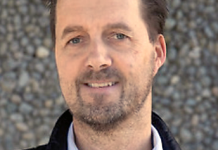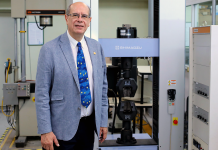The Quenching and Distortion Engineering conference series follows up on the former series of IDE, organized by IWT Bremen, Germany, and QDE, organized by IFHTSE. These two have been merged into the QDE series. In 2021, the QDE conference is also part of the European Conference on Heat Treatment series, which is supported by European organizations. The conference is scheduled for April 26 – 28, 2021 in Berlin.
An abstract of 300 words maximum should be submitted electronically before acceptance, preferably in Word or as PDF file to papers@echt-qde-2021.de. The deadline for submissions is September 30, 2020. The abstract should include the title of the paper, the authors’ names and addresses, telephone and fax numbers, and e-mail addresses. If possible, the name of the lecturer should be given, too. All presented papers will be published in the Conference Proceedings. Selected papers will undergo a review process in order to publish them in a special Issue of HTM Journal of Heat Treatment and Materials and Materials Science & Engineering Technology. Only English language will be used for all abstracts, papers, and presentations.
The ECHT and QDE conference will cover the quenching process as an essential step in the heat treatment of metallic components, and the relation of the distortion potential of a component with all steps of the manufacturing process especially quenching.
The conference addresses the following topics:
- Quenching facilities and controls.
- Quenching media including their characterization, monitoring, and servicing.
- Quenching processes.
- Measurement of distortion and residual stresses in general.
- In-process measurement of deformations, stresses, and phase compositions.
- Control of distortion.
- Quality management aspects.
- Interactions of different production processes.
- Case studies on distortion problems.
- Methods of distortion compensation.
- Modeling of quenching- and distortion-related phenomena (e. g. heat transfer, phase transformation, plasticity, creep, transformation plasticity).
- Determination of boundary conditions (e.g. heat transfer) for process simulation.
- Simulation of individual and subsequent processes such as casting, hot and cold forming, soft and hard machining, and heat treatment, including most prominently quenching.
MORE INFO www.echt-qde-2021.de
























